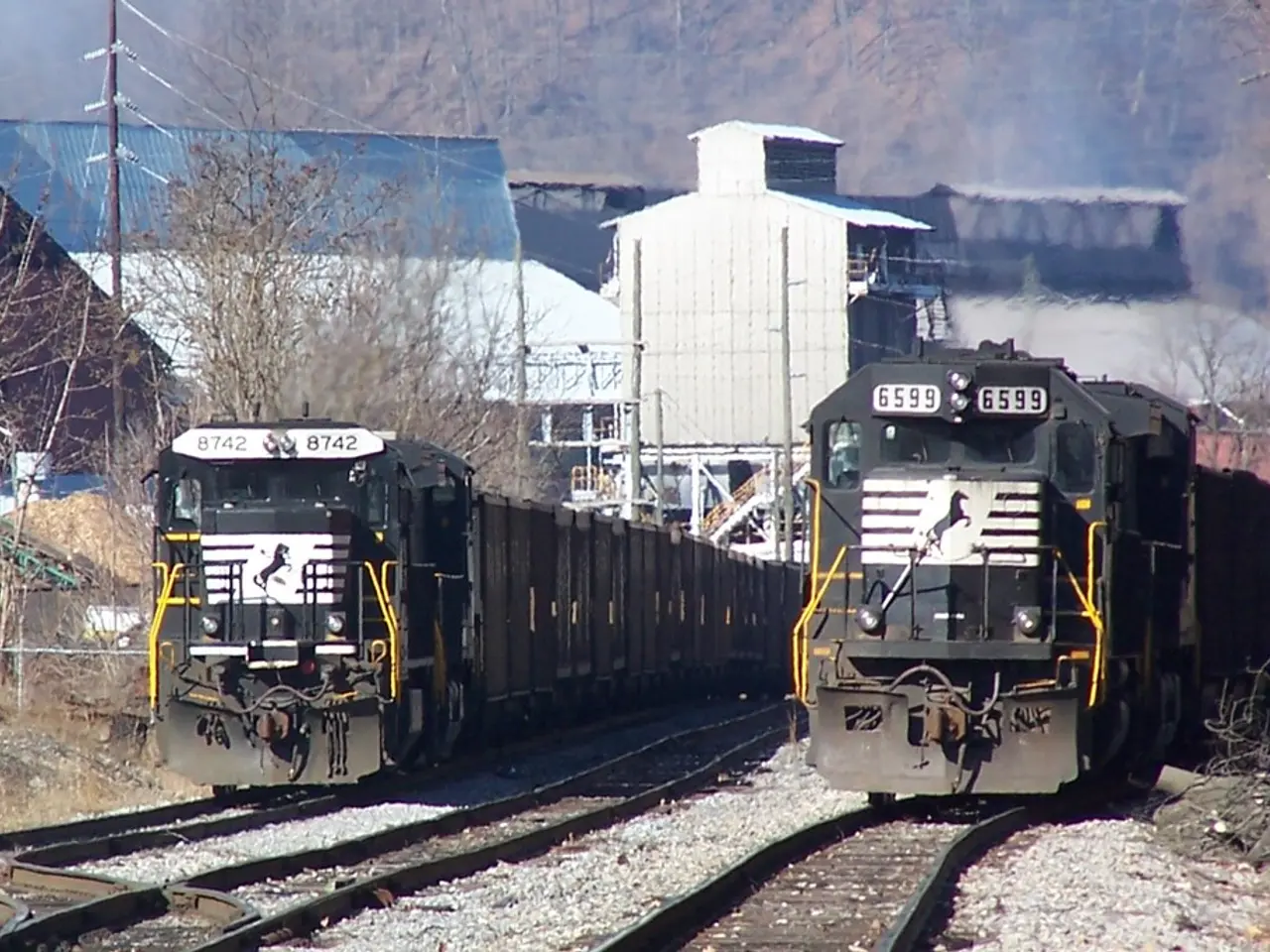Lowering Track Prices in Germany's Railway Sector: A Step Towards Sustainable Transportation
Reduced railway tolls to be enacted by the federal government. - R tailored railroad moth population growth faces restraint from the federal authority
Germany is taking significant strides to enhance its railway infrastructure and promote climate-friendly transport alternatives. As part of this initiative, the government has announced plans to reduce track prices, a key concern for both the industry and the government.
The Proposed Reduction in Track Prices
The Federal Government has unveiled a plan to lower the capitalization rate, a critical factor in determining track prices. This reduction is intended to prevent significant price increases for rail passengers in the future. According to reports by the German Press Agency, Patrick Schnieder, a member of the CDU, supports this move as a first step towards a planned reform of track prices.
Impact on the Railway Network and Passengers
The lower capitalization rate is expected to lead to improved efficiency and reduced costs for railway operations. This could benefit both freight and passenger rail services by making them more competitive and attractive. For passengers, enhanced infrastructure and more efficient rail operations could translate into faster, more reliable services. However, the direct impact of lowered track prices on passenger fares is not yet detailed in the available information.
The Role of the Federal Government
Berlin, the location of the federal government, plays a crucial role in the railway's financial situation, including track prices and the capitalization rate. The rising track prices are linked to the federal government's additional billions in equity provided to the railway. The railway has to pay interest on this equity, which is financed via the track prices. No further equity injections into the German Railways are planned for 2026.
The Future of Track Prices
The new legal situation is expected to be taken into account in the approval procedure of the Federal Network Agency by the change of timetable in December. The budget draft for 2025 does not meet the industry's demands regarding the track price promotion. Richard Lutz, the CEO of the railway, has expressed an urgent need for action regarding the sharply increased track prices.
Support for the Reform
Dirk Flege, the managing director of the Alliance pro Schiene, has stated that the current track prices act as a full brake on the shift of traffic from road to rail and the climate goals of the Federal Government. With the lower profit expectation, the track prices will not increase as much. The chairman of the Railway and Transport Union (EVG), Martin Burkert, has warned that rail passengers could face historical price increases of more than 10 percent this year if the railway toll is not eased through targeted promotion in the budget negotiations.
In conclusion, while the specifics of the track price reduction are still being worked out, Germany's focus on infrastructure investment and climate-friendly transport policies suggests a broader strategy to enhance the railway network and support sustainable transportation practices. The potential benefits for both rail passengers and the industry are significant, making this a crucial development to watch in the coming months.
- The government's proposal to lower the capitalization rate, aimed at reducing track prices, is supported by individuals such as Patrick Schnieder from the CDU, as it is considered a first step in a planned reform of track prices.
- The railway industry, represented by figures like Richard Lutz, the CEO of the railway, and Dirk Flege, the managing director of the Alliance pro Schiene, advocate for decreased track prices as they believe these prices are currently acting as a barrier for the shift of traffic from road to rail and for achieving the Federal Government's climate goals.
- The reform of track prices, with its potential impact on the financing of the German railways, is a matter of interest not only to the railway industry but also to various sectors such as finance, business, politics, and general-news, given its implications for sustainable transportation, vocational training (through improving the efficiency of the railway network), and industry (by making rail services more competitive).




